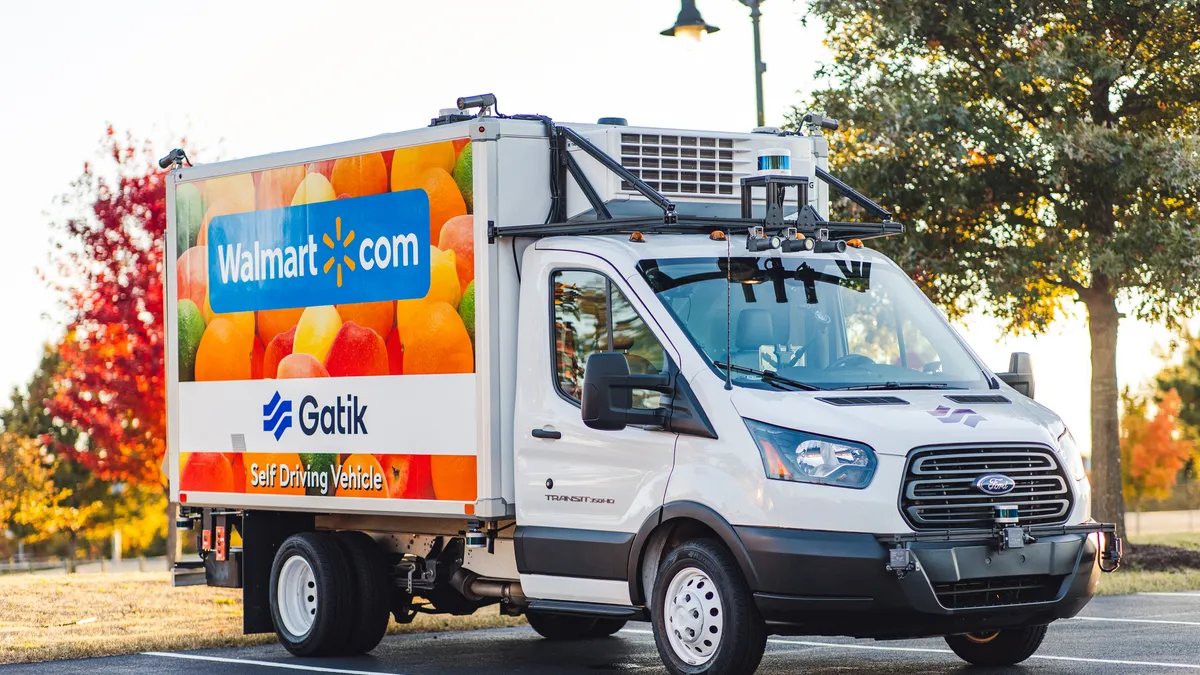Dive Brief:
- Walmart has reached a milestone in its self-driving pilot with Gatik as the retailer announced Tuesday its multi-temperature Autonomous Box Trucks will go fully driverless along a two-mile test route in Bentonville, Arkansas, in early 2021.
- The companies also announced that they are expanding their operation to a second pilot program along a longer, 20-mile route in Metairie, Louisiana, between a supercenter and a Walmart pickup point.
- Walmart’s move to driverless with Gatik will test the full potential of middle-mile autonomous delivery while the second test route will assess the technology's capabilities over long distances.
Dive Insight:
Walmart's multi-temperature Autonomous Box Trucks have traveled more than 70,000 miles along the test route established last year in Bentonville. That the retailer came across no major issues during the pilot phase is a good sign for its partnership with Gatik, as the 2-mile stretch of road, which will soon carry completely driverless trucks, is a major thoroughfare for the City of Bentonville that sees around 38,000 vehicles every day, according to the Arkansas Department of Transportation.
In Tuesday's announcement, Tom Ward, senior vice president of customer product for Walmart, wrote that this will be the first fully-driverless, middle-mile route for both the retailer and Gatik and that the companies will continue to gather useful data to hone the operation. The second test route in Louisiana, he noted, will help the retailer fill pickup orders for customers who live far away from company stores.
Gatik, which specializes in short-haul, light commercial middle-mile trips, is one of the many autonomous vehicle startups that Walmart has formed a partnership. The majority of these are customer-facing to ease grocery pickup and delivery services, in which Walmart has made massive investments in recent years. Gatik’s model, by contrast, operates specifically in delivery’s more routine but still very lucrative middle mile, which is on track to become a $1 trillion market, some experts estimate.
As Gatik noted in a blog post last week, the companies have been in close communication with legislators in Arkansas since before 2019, when the Arkansas governor signed into law a process to allow companies to develop pilot self-driving programs on local roads.
State and federal legislators have recently passed legislation to expand driverless vehicle pilots. Earlier this week, Cruise announced it is now the first company to be testing driverless cars without a safety driver in the dense, urban environment of San Francisco. The relative novelty of the technology, however, still carries a degree of risk for retailers eyeing the space, which involves years of testing and billions of dollars in investment.












